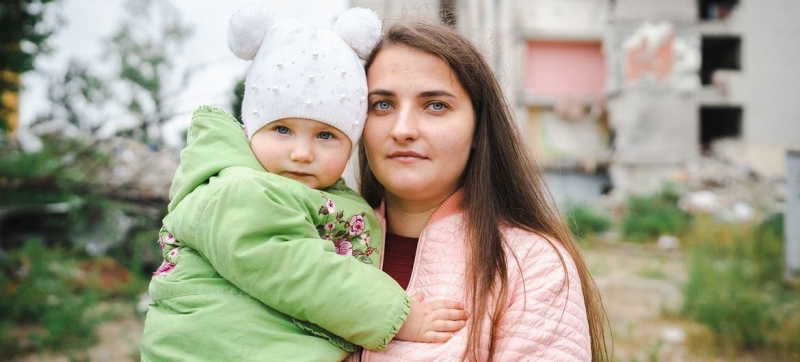
Ukraine has lost 18 positions in the human potential ranking since 2015 Rich countries have reached record levels of human development, but the poorest countries are in decline Sustainable Development Goals
The effects of war are being felt acutely in Ukraine, with the country’s Human Development Index (HDI) falling to its lowest level since 2004. This is according to the Human Development Report 2023-24, which was released on Wednesday by the United Nations Development Program (UNDP).
The document provides an update on the HDI: this composite measure reflects gross national income (GNI) per capita, educational attainment and life expectancy in each country.
Rising Inequality
The global HDI has reached a record high after sharp declines in 2020 and 2021, but progress has been highly uneven, according to new UNDP estimates. Rich countries have the highest levels of human development, while half of the world’s poorest countries remain below pre-pandemic levels.
“Rising inequality, escalating conflict and unprecedented climate shocks are tearing communities and regions apart. Disinformation and the erosion of trust destroy the social fabric and reduce the space for meaningful public dialogue. Differences are deepening at a time when cooperation is critical to our shared future,” said UN Secretary-General António Guterres in a message marking the release of the report.
Data from human potential
According to the report, the countries with the highest HDI scores are Switzerland, Norway, Iceland, Hong Kong (China), while Sweden and Denmark share fifth place in the ranking. Germany and Ireland are ranked 7th, the UK is 15th and the US is 20th.
Russia and Belarus are also among the countries with a very high level of human development according to the UNDP classification: they are on the 56th and 69th lines, respectively. In addition, Kazakhstan and Georgia are also included in the list of countries with very high HDI.
Read also:
UN: most women live in countries that are far from gender equality
Ukraine is among the countries with a high level of development, occupying 100th place in the ranking. At the same time, Ukraine has lost 18 positions since 2015. According to UNDP, the country recorded its lowest Index score since 2004.
Among the countries with the lowest HDI values are Somalia, South Sudan, Central African Republic, Niger and Chad. Indicators for the DPRK and Monaco were not estimated due to lack of data.
“The widening human development gap identified in the report shows that two decades of steadily narrowing inequality between rich and poor countries is now being reversed,” said UNDP chief Achim Steiner. He said the lack of collective action to combat climate change, poverty and inequality not only impedes human development, but also exacerbates polarization and further undermines trust in people and institutions around the world.
“The Paradox of Democracy”
The report argues that the promotion of international collective action is hampered by the “paradox of democracy”: while 9 out of 10 people around the world approve democracy, more than half of global survey respondents express support for leaders who act contrary to the democratic process.
Experts point to research showing that countries with populist governments have lower economic growth rates. Fifteen years after a populist government took office, GDP per capita is 10 percent lower than it would have been under a non-populist scenario.
The report also highlights that economic interdependence remains high. The authors note that none of the regions can be self-sufficient, since they all depend on imports of basic goods and services. In addition, there is a further development and complication of global interconnectedness and the formation of global public goods, such as planetary and digital goods.
In this context, multilateral cooperation plays a fundamental role, says UNDP , since bilateral commitments are unable to solve the problems associated with global interconnectedness and the provision of global public goods.
